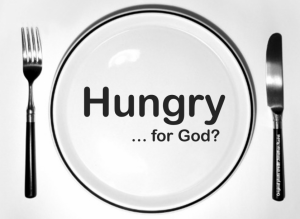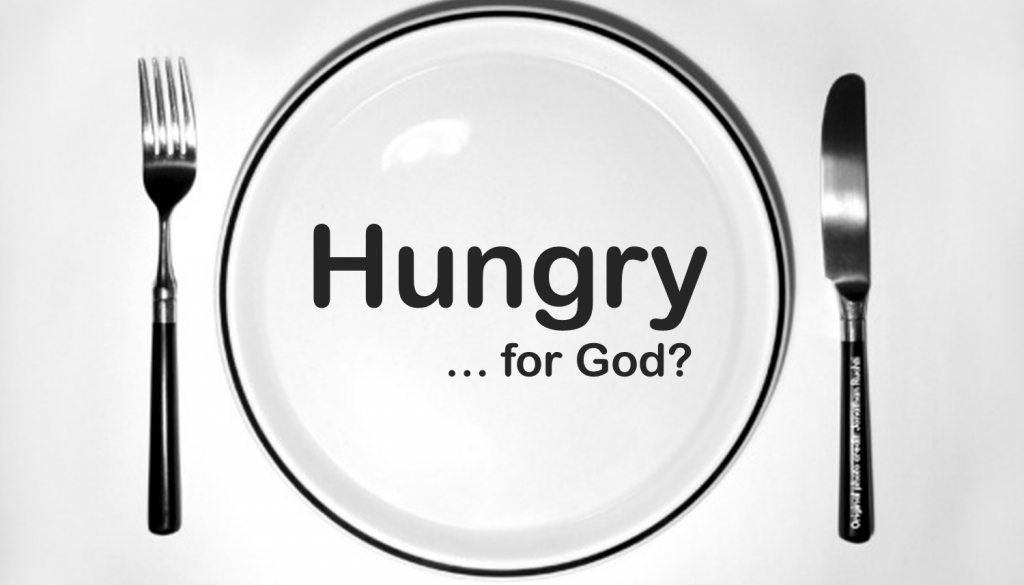Matthew 6:16-18 Jesus Address Fasting

Jesus begins His instruction on fasting the same as He did on prayer and giving. It is to be done in private and not for show. Apparently fasting was a common practice of the religious leaders at that time and their behavior and practice of it was anything BUT private. The same holds true for the religious leader’s behavior and practices of giving and prayer. Thus Jesus’ instructions.
I was thinking about the practice of fasting and wanted a little more information. I was curious about the origins of fasting, if God ever told anyone to fast, and the biblical reasons for fasting. I came across some interesting websites while searching out the answers to these questions. Here is what I found. I DO NOT agree with everything I found but thought I would pass it on and let you make up your own mind.
On the origin of fasting, one website I visited claims that God telling Adam in the Garden of Eden not to eat of the Tree of Knowledge, was the first “dietary restriction” and therefore the first fast. This is a LENGTHY discussion about fasting and its origins, found at Bible.org. This article was actually the author’s thesis paper so is a bit complicated to read. I gave up about halfway through, but I’m placing a link just in case anyone is interested. This site wasn’t the only one generated when looking for the origins of fasting but it was the most thorough.
The second question of, had God ever told anyone to fast, was of more interest to me. I didn’t believe there was any direct command from God concerning fasting, but I was mistaken. The website that proved this to me is: Christian Bible Reference Site. In their section on “reasons for fasting”, I discovered that in Numbers 27:7, God included a command to fast as part of the offerings on the Day of Atonement. My bible doesn’t state a command to “fast” but the translation of “afflict yourselves” is stated in the helps to mean to fast.
Two instances when God caused a fast were with Elijah and Moses. God’s angel told Elijah in 1 Kings 19:5-8 to rise and eat. What he ate at those meals sustained him for 40 days as he journeyed to Horeb, and eventually Mt. Sinai, where he met with God in the mouth of a cave. God didn’t exactly command Elijah to fast at that time but he was provided no more food for his journey, so in essence, God caused him to fast. I don’t know if he drank water along the way because the bible doesn’t tell me that. I know Moses didn’t eat or drink for 40 days when he was with God up on Mt. Sinai. God didn’t command Moses to fast either but Moses was so busy in the presence of God that physical concerns apparently went by the wayside.
The final question of the biblical reasons for fasting was answered by the same site as the last question. The reasons listed were: distress and grief; spiritual preparation; and repentance and atonement. The scripture references associated with each concept really helped me understand the implications. I would recommend this website to anyone who is interested.
Ok. My research is done. Now what do I do with it? I think I got sidetracked and decided to do the research in the first place because this is not an easy subject for me. I did honestly want to know if God says I have to fast. I have such a complicated relationship with food that I needed some actual rules to guide me. I didn’t really find any since we are not still living under the law.
What I did find pretty much confirms what I had grown up understanding. That fasting, when coupled with prayer, is used to assist one in spiritually focusing on God. It is meant to strengthen the spiritual relationship and connection. I have heard people say they have actually heard God speaking to them after fasting for some time. In Mark 9:14-29 Jesus even stated that prayer and fasting were necessary for the healing of the epileptic boy brought to Him. Fasting appears to open a deeper realm in spiritual warfare.
I felt called to fast at one time in my life. I don’t know if I felt called by God or by someone else’s example, but I tried it as a means to add weight to my petition. I was trying to sell my home I had that I was renting to someone else, because the commute was too great for my little family to make on a daily basis. I was able to sell it, but actually had to pay the buyer a significant amount of money at closing. Fortunately, God had provided me the money shortly before then. I had other plans for the money before coming to closing, but at least it was available and I was freed up from the financial burden.
While writing this last paragraph I was wondering if God had even heard my plea because it cost me at closing. He just reminded me of His provision BEFORE I even knew the need was going to be there. I didn’t even remember until I was typing that He had even sent the money I had needed. I guess He answered that question. He definitely heard me.
Another thing I noticed personally about fasting is that it makes me VERY grumpy and weak. At least it did when I tried it before. I still get grumpy when I’m hungry, even now that I have enough fat to sustain me for a LONG time. For myself, I believe that I will wait to be called again before fasting again, especially since my attitude is very impactful in my current occupation. Being angry and grumpy, I hurt the very one I am called to help.
One last note I want to add is that when fasting, I have heard it is important to curtail your daily activities to compensate for the reduction in caloric intake. This reduction in activities also allows extra time to focus on scriptures and your relationship with God. That might have been my BIG mistake when I tried fasting before. I was still just as busy as before. Probably a lot of why I was weak and grumpy too. Fortunately, God still honored my half focused fast. Talk about a loving Father!
Thank You God that You do meet us at our point of need and our level of understanding. You knew my need even before I asked, and You answered in ways I only now truly appreciate. Thank You for Your love and care during all the hard times in my life. That section was one of the hardest and You carried me through it every day. THANK YOU! As for what You have planned for my future regarding fasting, I leave it all in Your hands. I will trust You to tell me clearly when You want me to pull closer through this focusing. Please help me to lean into You with all my heart at all times, fasting or feasting. Thank You again for honoring the cries of Your little child. I still have a LOT of growing to do. I know I can trust You to keep me safe through all of it.




March 16, 2016 @ 3:38 PM
There are many ‘kinds’ of fasts practiced today, and most (if not all) find their roots in Scripture–at least in reference if not in command.
One of the more common fasting practices is called the “Daniel Fast” wherein the one fasting limits themselves to basic wholesome foods and denies themselves any kind of pleasurable tastes. This one is rooted in the abstinence of Daniel and the three Hebrew children when they were being groomed for service to the king. The dietary practices of the land wherein they were held captive was not agreement with Hebrew dietary laws, so Daniel persuaded the household overseer to allow them to eat only lentils for a prescribed time (to show him that their God would sustain them…they didn’t need the king’s meats and fancy delicacies to retain their health.)
Lenten fasts call only for abstinence from meat on Fridays (fish is allowable.) Full fasting is requested on Ash Wednesday and Good Friday (which mark the beginning and ending of Lent.) However, the Catholic church considers fasting to be: eating only one full meal for the day which can be supplemented with two small snacks, the total of which do not equate to a full meal. Water is unrestricted as it is an emblem of purification given to us in the Sacrament of Baptism as is never to be denied. Rather than finding a Scriptural source for this practice, it is rooted in Church Tradition which dates back to those things handed down from the early church that were not written down, but passed forward from generation to generation (the practice of that ‘handing down’ or ‘passing forward’ is rooted in Scripture–all the way back to Deuteronomy and the giving of the Law. The Israelites were told to “write these things on your forehead, and on the doorways of your house; talk of them as you walk together, and as you sit together over meals.)
Throughout my life I have also heard that fasting does not always mean ‘from food,’ but we can offer up anything that we enjoy more than spending time with God (such as watching TV, reading things other than devotional materials, shopping for things beyond our base necessities, etc.) and spend the time we would ordinarily be doing those things in prayer and Scripture study. I haven’t been able to track down any Scriptural support for this kind of fast, but I also can’t find anything that would make it not valid.
March 16, 2016 @ 4:49 PM
After I finished with this post, I came across a reference to fasting that talks about a fast that is pleasing to God. In Isaiah 58 it doesn’t say that God called the people to a fast but does say, “Is this not a fast that I have chosen.” So God does choose a fast. In this reference it talking about the attitude and actions of the faster. How Israel was fasting and trying to get God to move on their behalf but were at the same time abusing their fellow men. God would not honor their fast because their heart and actions were not right.
I have heard of a Daniel fast before and have read the story. I love the story of how God showed that His ways are better than any other.
Growing up in the Protestant arm of faith, I don’t know a lot about Catholic practices. Thank you for sharing this information with us. Fasting isn’t regulated or required in the Protestant seating section (as far as I know) but we can certainly appreciate our Catholic brothers and sisters desire to follow the tenets of their faith. God honors a heart that honors Him and His Son, regardless of labels or laws.
March 22, 2016 @ 3:13 PM
Amen!